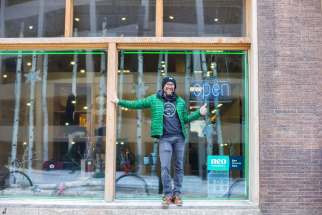An open-and-shut case Loosened public-health restrictions lifeline for some businesses barely hanging on, but hard-hit restaurants and bars tread water
Read this article for free:
or
Already have an account? Log in here »
To continue reading, please subscribe:
Monthly Digital Subscription
$0 for the first 4 weeks*
- Enjoy unlimited reading on winnipegfreepress.com
- Read the E-Edition, our digital replica newspaper
- Access News Break, our award-winning app
- Play interactive puzzles
*No charge for 4 weeks then price increases to the regular rate of $19.00 plus GST every four weeks. Offer available to new and qualified returning subscribers only. Cancel any time.
Monthly Digital Subscription
$4.75/week*
- Enjoy unlimited reading on winnipegfreepress.com
- Read the E-Edition, our digital replica newspaper
- Access News Break, our award-winning app
- Play interactive puzzles
*Billed as $19 plus GST every four weeks. Cancel any time.
To continue reading, please subscribe:
Add Free Press access to your Brandon Sun subscription for only an additional
$1 for the first 4 weeks*
*Your next subscription payment will increase by $1.00 and you will be charged $16.99 plus GST for four weeks. After four weeks, your payment will increase to $23.99 plus GST every four weeks.
Read unlimited articles for free today:
or
Already have an account? Log in here »
Hey there, time traveller!
This article was published 22/01/2021 (1786 days ago), so information in it may no longer be current.
Pity a luggage store during a global pandemic in which people aren’t supposed to travel.
The Canada-U.S. border has been closed for months, and there’s no way to know when it might open again. Passenger air traffic has declined by more than 95 per cent.
Code-red public-health restrictions imposed by the province in November in an effort to slow the frightening pace of COVID-19’s spread prevented in-store sales of anything not considered essential. Luggage and travel accessories weren’t on the list.
U.N. Luggage has been doing business in the Exchange District since 1940.
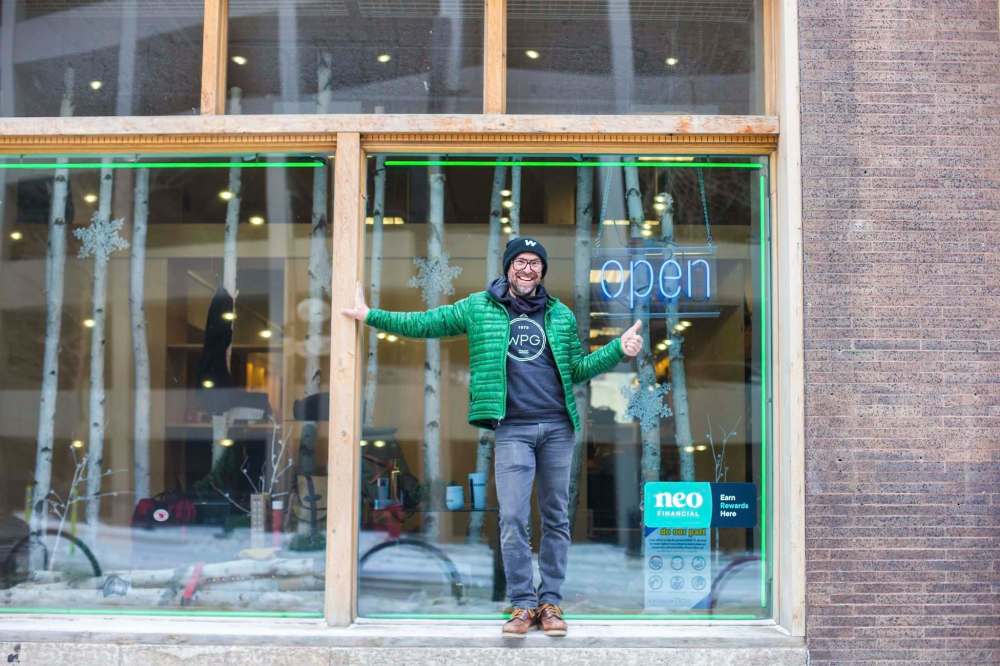
Current owner Jon Thiessen, who bought into the business with his sister about a decade ago, says he could never have predicted the effect that the health crisis has had on the store’s operations.
“I thought it would be difficult through the summer,” Thiessen says. “Being a luggage store, our bread and butter are travellers. When people aren’t travelling, it is difficult to operate (offering curbside pickup). We are so down it is scary.
“You can’t survive selling four suitcases a month — that’s not much of an exaggeration.”
There is a glint of light visible — dim though it may be — in the dark and seemingly endless COVID-19 tunnel this morning for Thiessen and other retailers across the city and most of the province.
Thursday, 10 weeks after imposing the severe, critical-level clampdown on in-person commerce and social interaction, Premier Brian Pallister and chief public health officer Dr. Brent Roussin announced a new public-health order that went into effect at 12:01 a.m. today that loosens some of the most severe restrictions.
The changes give retailers the green light to open their doors again at a quarter of normal capacity — while ensuring customers maintain physical-distancing requirements. The same goes for hair salons, barber shops and unregulated health services, with the addition of collecting contact-tracing information.
And outside human contact is permitted again, albeit on a limited basis; Manitobans are allowed to designate two people not part of their households to visit indoors; up to five people can join an outdoor gathering on private property; and funeral services can include up to 10 people and the officiant.
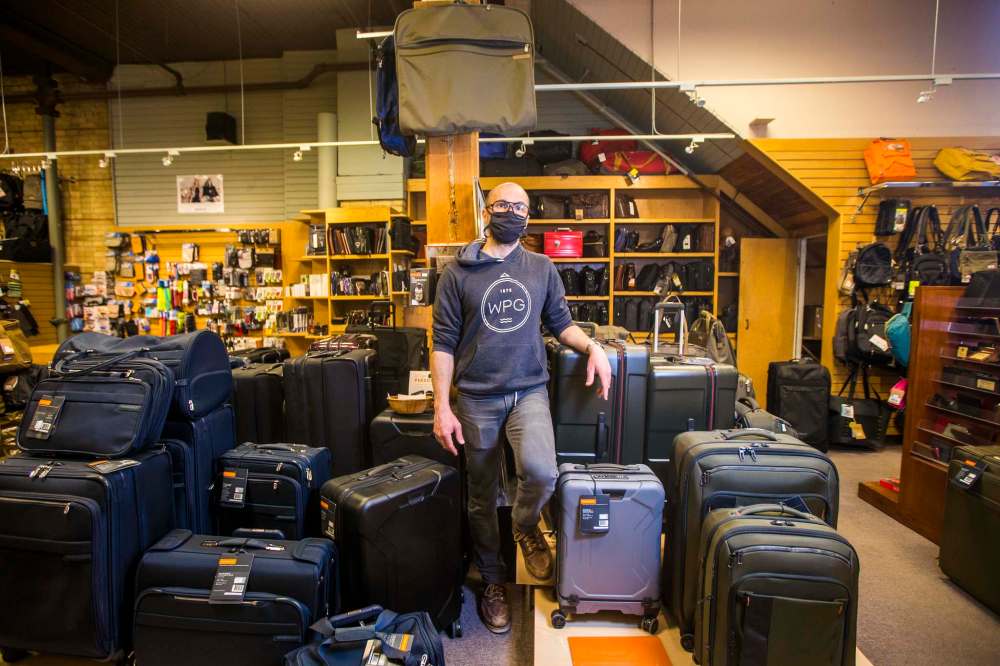
The decision to relax some restrictions came after COVID-19 data began showing some improvement in most of the province, measured by case numbers, test-positivity rates, hospitalizations and the number of patients being treated in intensive-care units.
The new rules don’t apply in Churchill or in the Northern Health region, where the risk is still too high, health officials have decided.
And neither do they allow restaurants and bars to invite customers back inside.
Even with financial assistance from both the federal and provincial governments, many business owners and the people who work for them have had to dig into savings or take on debt to keep their heads above water.
Data released this week by the Canadian Federation of Independent Business shows the situation is dire. More than one in six businesses — at least 239,000 across Canada and 5,601 in Manitoba — are at the risk of permanently disappearing because of COVID-19, or have already closed.
●●●
Thiessen knows of luggage stores in other parts of Canada that have had to close their doors permanently.
U.N. Luggage sells online and ships across the country.
“We’re holding on for now, but at some point you really need things to resume in the world of travel,” he says, adding it’s nice to have customers back in person, at least theoretically.
“I think luggage will be long and slow to recover.”
Rather than wave the white flag when business ground to a near halt, Thiessen steered the company into wider offerings in an effort to draw more customers, opening The Pen Counter, which sells writing instruments along with accessories and other stationery items.

And like many other businesses, he has branched out into face masks, including offering some from a museum artist series.
Thiessen says with so many people working remotely from home, downtown and the Exchange District are akin to a ghost town.
“The TD Centre, I think they have 33 per cent of (the usual number of) people coming into that building,” he says. “Usually people don’t want to come downtown because it is difficult to park, but it’s wide-open now. Even foot traffic in the Exchange is really low.”
John Graham, the Retail Council of Canada’s government relations director for the Prairie region, says Manitoba retail community is devastated but hopeful.
“Retailers look at this moment as an important step forward towards economic recovery, and remain fiercely committed to maintaining a safe environment for both their employees and customers,” he says.
●●●
The Green Brier Inn, with its Tudor-like exterior, has been a fixture on north Main Street since 1929.
The neighbourhood pub has been surviving on beer-vendor sales and — beginning last month — a newly minted cannabis store.
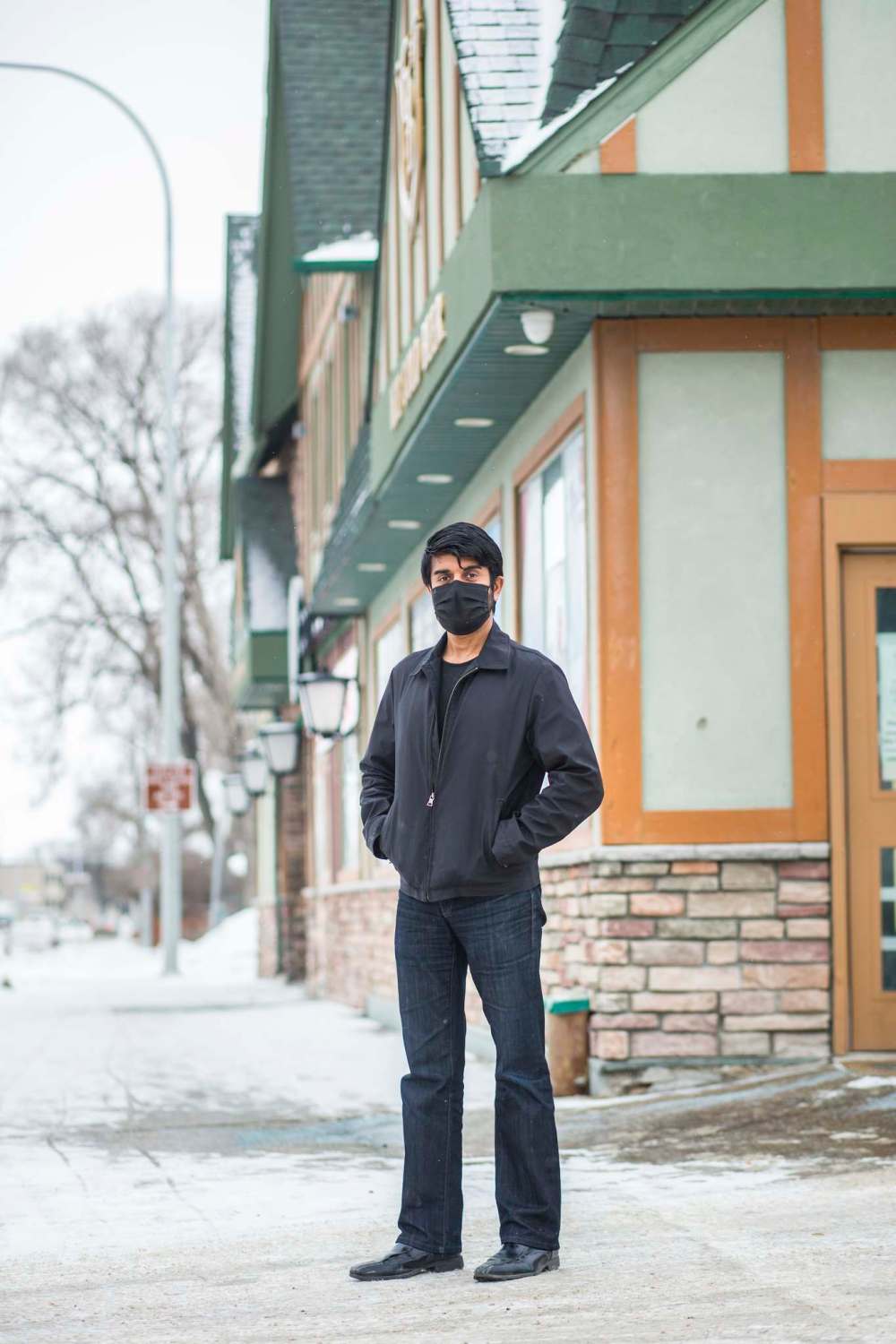
Jon Singh, the establishment’s owner for the past 15 years, says things have been tough, but the weed store has improved the business’s immediate outlook.
“People are happy you can get your beer and cannabis all in one shot,” Singh says. “But this is a place that is open seven days a week, 365 days a year. We’re open from 9 a.m. for beer and cannabis with the cannabis closing at midnight and the beer store at 2:30 and the bar stays open the same as the beer store. And now the bar is closed.
“We understand it is saving lives and we do understand where the province is coming from. But we have followed all the protocols. It was the downtown bars causing the (virus) spreading with their younger patrons.”
Singh says the lockdown forced him to lay off 40 per cent of the staff.
“We couldn’t take the staff from the bar to the beer store because we already had staff there,” he says. “And cannabis is specialized. As far as I know, a couple have moved on, but everyone else is ready and willing to come back immediately.”
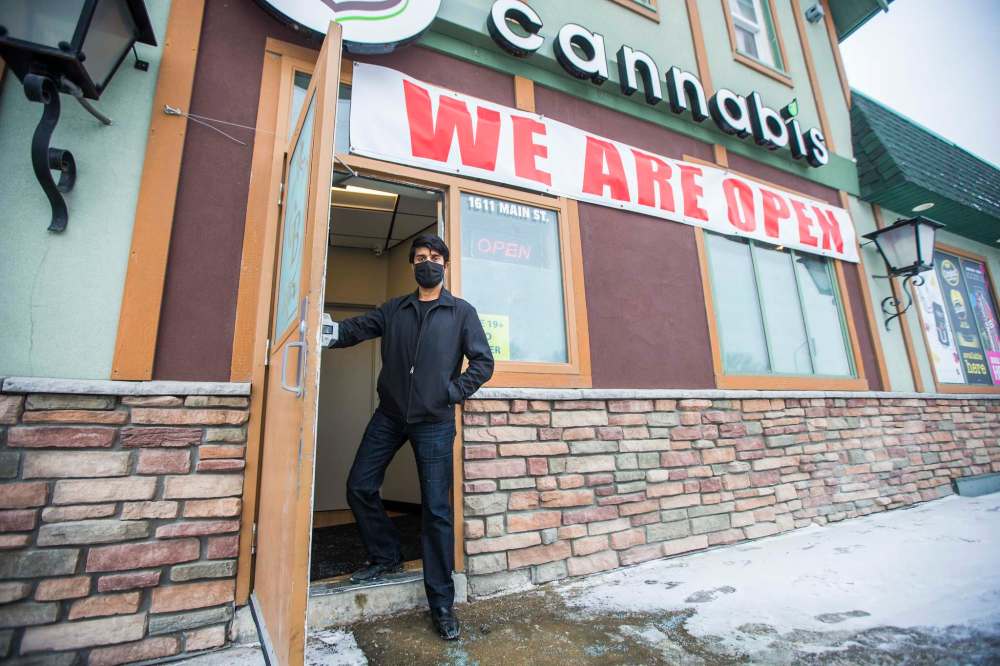
He expects bars and restaurants will be among the last businesses allowed to reopen.
“They’ll probably want to see how things go before we can open again,” he says.
●●●
Transcona’s L’Arche Tova Cafe serves great food and warms hearts.
The L’Arche Winnipeg operation pairs paid staff and both paid and volunteer adults living with special needs who work as hosts, servers and in the kitchen. The organization creates homes and opportunities to people living with intellectual disabilities.
The restaurant’s value to the people who find meaningful work there and the community at large is, unfortunately not a consideration as far as COVID’s impact is concerned.
There have been layoffs.
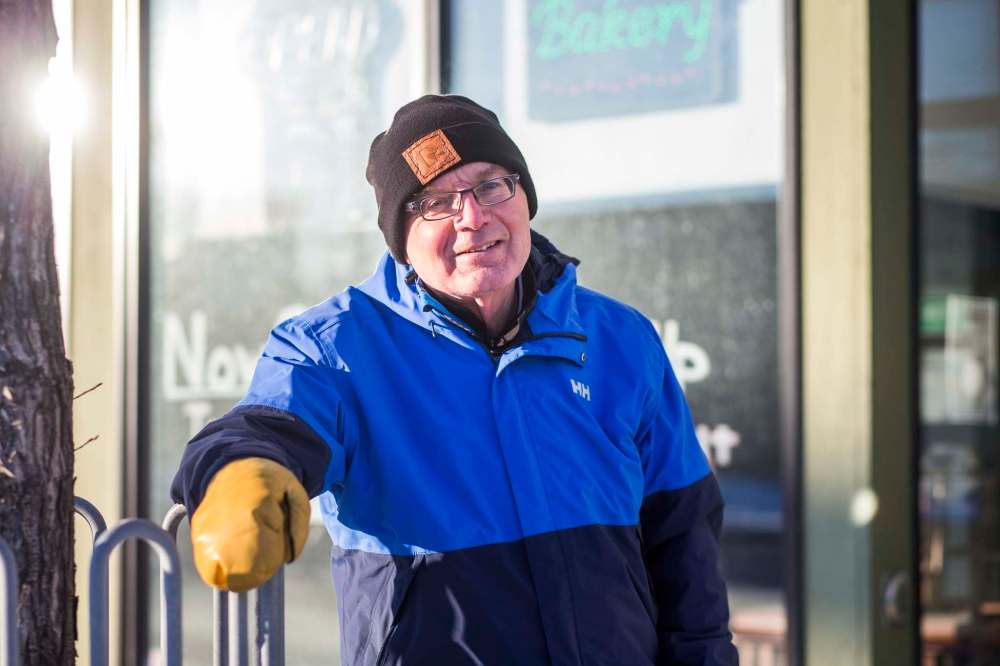
“It is really hurting us because the purpose is for people to meet people with disabilities and discover their gifts,” says L’Arche executive director and community leader Jim Lapp. “We’re looking for that to happen again.”
Shaun Jeffrey, executive director of the Manitoba Restaurant & Foodservices Association, says the latest lockdown has been devastating.
“They were already closed for two months back in the spring so they have been closed a total of 4 1/2 months now,” Jeffrey says.
“There’s no sense of when this will end. It has been over 2 1/2 months now of no dining-in experience and, when you’re a people person like our members are, you need people to come in.”
Jeffrey says 40,000 Manitobans are employed in restaurants and about 80 per cent of them have been laid off for months now.

“When does it stop? When can you give our industry, which is significant, some type of feedback or reassurance you will allow us to reopen as soon as possible? “Our industry can’t stay closed forever.”
●●●
COVID-19 has taken much more than a little off the top of hairstylist Meghan Greenlay’s income.
“I’ve been doing hair for 23 years and I’ve never had a break like this; when you are self-employed you have to work or you don’t get paid,” says Greenlay, one of four stylists at Menagerie Beauty and Goods in Osborne Village.
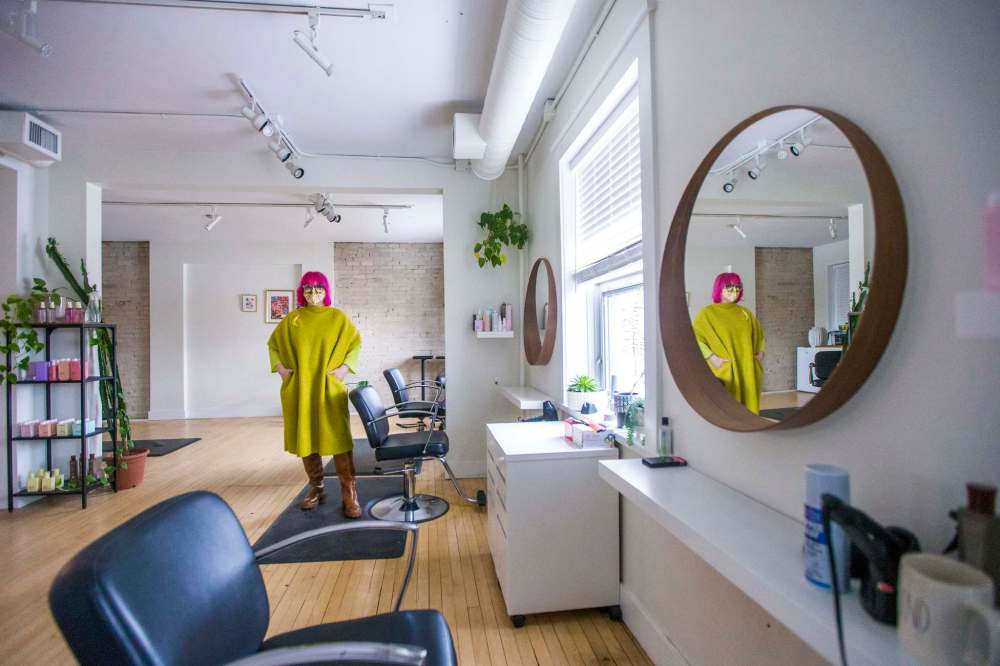
“With some clients it is going on close to a year since I’ve seen them because they had to cancel and couldn’t rebook or because things (the pandemic) got out of hand and they didn’t want to come.
“It is very scary, the not knowing will they come back or not when this is over.”
The long break has allowed her to focus on what was a sideline, but has recently become a source of income: Greenlay creates pottery and sells her wares online.
She’s obviously happy to be back behind her chair at Menagerie, although doesn’t really know what to expect. One thing she knows is that even if all her clients return, she won’t be able to serve the same number during a shift, because of sanitization requirements.
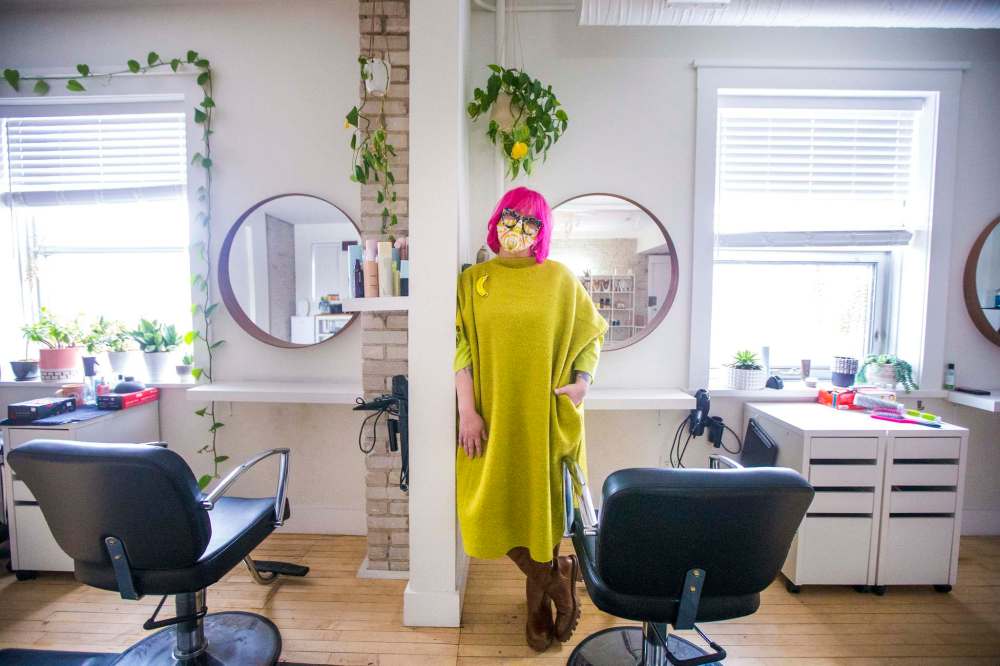
“There is 20 minutes of cleaning between clients,” she says. “And, because everybody hasn’t had their hair done in months, everything will be a major project now.”
Regardless, she has been looking forward to this day for a while.
“I’ve cut my own hair a few times, so I (would) be able to face the public,” she says, laughing.
kevin.rollason@freepress.mb.ca

Kevin Rollason is one of the more versatile reporters at the Winnipeg Free Press. Whether it is covering city hall, the law courts, or general reporting, Rollason can be counted on to not only answer the 5 Ws — Who, What, When, Where and Why — but to do it in an interesting and accessible way for readers.
Our newsroom depends on a growing audience of readers to power our journalism. If you are not a paid reader, please consider becoming a subscriber.
Our newsroom depends on its audience of readers to power our journalism. Thank you for your support.
History
Updated on Saturday, January 23, 2021 12:20 AM CST: Corrects spelling of stationery.





